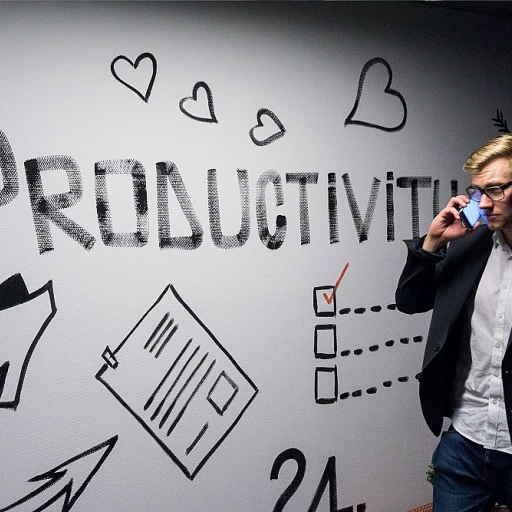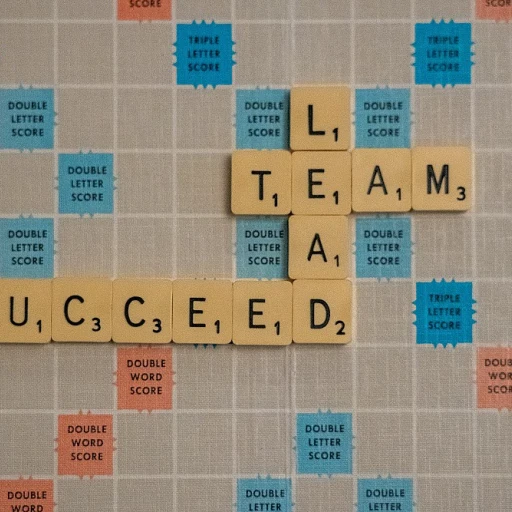
Understanding the impact of artificial intelligence on recruitment
AI’s Growing Role in Modern Recruitment
Artificial intelligence is reshaping the way companies approach the interview process. From sourcing job candidates to scheduling interviews, AI-powered tools are helping hiring managers save time and make better decisions. According to recent industry analysis, AI is now used to screen resumes, analyze candidate interview responses, and even suggest strategic interview questions tailored to each role (how artificial intelligence is transforming full-cycle recruiting).
How AI Impacts Interview Questions and Candidate Selection
With AI, companies can design interview questions that go beyond the basics. These systems analyze data from previous successful hires, helping to craft questions that reveal a candidate’s problem solving skills, decision making abilities, and fit with company culture. For example, AI can suggest behavioral interview questions like “Describe a time you had to adapt quickly to a change at work” or “Tell us about a situation where you demonstrated leadership in your team.” These questions help interviewers assess both technical and soft skills, which are crucial for long term success in any position.
- Efficiency: AI reduces the time spent on repetitive tasks, allowing hiring managers to focus on the candidate interview experience.
- Consistency: Automated systems ensure each job candidate is asked the same core interview questions, supporting fair evaluation.
- Insight: AI tools can analyze answers in real-time, flagging responses that align with the company’s values and management style.
Preparing for the Future of Work
As AI becomes more integrated into recruitment, both candidates and companies need to adapt. Job seekers should be ready to answer questions that assess their ability to work alongside AI systems and describe experiences where they’ve used technology to solve problems. For hiring teams, it’s essential to balance AI-driven insights with human judgment, ensuring that the interview process remains personal and aligned with the company’s mission.
Crafting interview questions for AI-augmented roles
Designing Questions for AI-Integrated Roles
When preparing for a job interview in today’s AI-driven landscape, it’s crucial to tailor interview questions that reflect the evolving nature of work. Candidates are expected to interact with artificial intelligence systems, so the interview process should probe both technical and soft skills relevant to these changes. A strategic interview approach involves asking questions that help the hiring manager understand how a candidate adapts to new technologies, collaborates with AI tools, and contributes to the company’s long-term goals. Here are some practical ways to craft effective questions:- Behavioral interview questions: Ask candidates to describe a time they worked with AI or automation in a previous role. For example, “Can you describe a time when you used AI to solve a problem or improve a process at work?” This helps assess real-world experience and problem solving skills.
- Technical proficiency: Include questions that evaluate familiarity with AI systems relevant to the position. For instance, “What AI tools have you used in your previous job, and how did they impact your workflow?”
- Soft skills and adaptability: The best candidates will show flexibility and a willingness to learn. Questions like, “How do you stay updated on new technologies in your field?” or “Describe a time you had to quickly adapt to a new digital tool” can reveal adaptability and growth mindset.
- Team and company culture fit: Since AI changes team dynamics, ask about collaboration. “How do you ensure effective communication when working with both human colleagues and AI systems?” This question helps gauge how the candidate will fit into your company culture and team.
- Ethical and decision making: With AI’s growing influence, decision making becomes more complex. Consider, “Describe a situation where you had to make a decision involving AI that could impact your team or company. What factors did you consider?”
Evaluating soft skills in a digital landscape
Spotlighting Adaptability and Communication
In today’s digital landscape, evaluating soft skills during the interview process is more important than ever. As companies integrate artificial intelligence into their workflows, the ability of a candidate to adapt, communicate, and collaborate with both humans and AI systems becomes a key differentiator. Traditional interview questions may not fully capture these competencies, so it’s essential to tailor your approach.
- Behavioral interview questions: Ask candidates to describe a time they had to learn a new technology or adapt to a digital tool. For example: “Can you describe a time when you had to quickly adapt to a new software or process at work? How did you approach the change?” This helps reveal their flexibility and willingness to learn.
- Problem solving and decision making: Use questions that explore how candidates handle complex situations involving both people and technology. For instance: “Tell us about a situation where you had to solve a problem using both your technical and interpersonal skills. What was the outcome?”
- Teamwork in a hybrid environment: With remote and hybrid teams becoming the norm, ask about experiences working with distributed teams or collaborating through digital platforms. “How do you ensure effective communication and collaboration when working with team members in different locations?”
Assessing Culture Fit and Emotional Intelligence
AI can help screen for technical skills, but understanding a candidate’s fit with your company culture and their emotional intelligence still requires human insight. Strategic interview questions help hiring managers gauge how well a candidate will integrate with the team and contribute to a positive work environment.
- Company culture alignment: “Describe a time when you had to adjust your work style to fit a new company culture. What did you learn from the experience?” This question helps uncover adaptability and openness to feedback.
- Long-term vision: “Where do you see your career evolving in a digitally driven company like ours?” This gives insight into the candidate’s motivation and alignment with the company’s direction.
Leveraging Digital Records for Deeper Insights
Modern applicant tracking systems (ATS) maintain digital records of candidate interactions and responses throughout the job interview process. Reviewing these records can help hiring managers identify patterns in how candidates answer questions, approach challenges, and demonstrate soft skills over time. For more on how digital records support the interview process, see this resource on digital records in applicant tracking systems.
Ultimately, combining AI-driven insights with thoughtful, human-centric interview questions will help you identify candidates who not only have the technical proficiency but also the soft skills needed to thrive in your company’s evolving digital environment.
Assessing technical proficiency with AI systems
Practical Approaches to Gauge AI Skills in Interviews
When hiring for roles that require working with artificial intelligence, it’s essential to design interview questions that reveal a candidate’s technical proficiency. The interview process should go beyond surface-level knowledge and focus on how candidates apply AI tools in real-world scenarios. This helps the hiring manager understand if the candidate can contribute to the company’s goals and adapt to evolving technology.- Scenario-Based Questions: Ask candidates to describe a time when they used AI systems to solve a problem or improve a process. For example, "Can you describe a time you implemented an AI tool to optimize workflow in your previous job?" This question helps assess both technical skills and problem solving abilities.
- Hands-On Tasks: Consider including a practical exercise during the job interview. For instance, provide a dataset and ask the candidate to outline how they would use AI to extract insights. This approach reveals their familiarity with relevant platforms and their decision making process.
- Behavioral Interview Techniques: Use behavioral interview questions to understand how candidates approach learning new AI technologies. For example, "Tell us about a time you had to quickly learn a new AI tool to support your team." This helps gauge adaptability and long term commitment to growth.
- Strategic Interview Questions: Explore how candidates align AI solutions with company culture and business objectives. A question like, "How would you ensure that an AI system supports our management style and enhances team collaboration?" can reveal their strategic thinking and understanding of the role.
Key Areas to Focus On
- Technical Depth: Assess the candidate’s experience with specific AI platforms, programming languages, or tools relevant to the position. Ask about their favorite AI project and what made it successful.
- Integration Skills: Evaluate how well the candidate can integrate AI solutions into existing workflows. Questions like, "Describe how you would introduce a new AI tool to a team unfamiliar with it," can be insightful.
- Problem Solving: Focus on questions that help you understand the candidate’s approach to troubleshooting and optimizing AI systems. For example, "What steps would you take if an AI model produced unexpected results during a critical project?"
Addressing ethical considerations in AI-driven hiring
Ensuring Fairness and Transparency in AI-Driven Interviews
As artificial intelligence becomes more integrated into the interview process, ethical considerations are increasingly important for hiring managers and HR professionals. Using AI to screen job candidates or generate interview questions can help save time and reduce bias, but it also raises questions about fairness, transparency, and accountability.
- Bias in Algorithms: AI systems are only as unbiased as the data they are trained on. If historical data reflects existing biases in hiring, the AI may unintentionally perpetuate them. It’s crucial to regularly audit AI tools for fairness, especially when evaluating soft skills or behavioral interview responses.
- Transparency for Candidates: Candidates should be informed when AI is part of the interview process. Clear communication about how AI is used to assess their answers or skills builds trust and helps candidates feel respected throughout the job interview.
- Data Privacy: Collecting and analyzing candidate data with AI requires strict data protection measures. Companies must ensure that personal information is handled securely and only used for its intended purpose during the hiring process.
- Human Oversight: While AI can help streamline decision making, final hiring decisions should always involve human judgment. This ensures that unique experiences, cultural fit, and company values are considered alongside AI-generated insights.
When crafting interview questions for AI-augmented roles, it’s important to ask candidates about their comfort with technology and their views on ethical AI use. For example, a strategic interview question might be: "Describe a time when you identified an ethical concern with a technology at work. How did you address it?" This helps assess a candidate’s problem solving skills and alignment with company culture.
Ultimately, integrating AI into the interview process should enhance—not replace—the human element. By prioritizing fairness, transparency, and ethical standards, companies can build trust with job candidates and ensure a positive experience for everyone involved in the hiring process.
Using AI to enhance the interview experience
Personalizing the Interview Process with AI
Artificial intelligence is changing how companies approach the job interview process. By leveraging AI, hiring managers can tailor interview questions to better match the role and the unique skills required. This means candidates are more likely to face questions that reflect real challenges they will encounter in the position, making the experience more relevant and engaging for both sides.
Improving Efficiency and Consistency
AI tools help streamline the interview process, saving valuable time for both candidates and interviewers. Automated scheduling, pre-screening, and even initial candidate interviews can be managed by AI, allowing hiring teams to focus on strategic interview questions and deeper conversations. This consistency ensures every candidate is evaluated fairly, reducing bias and helping companies find the best fit for their team and company culture.
Data-Driven Insights for Better Decision Making
With AI, hiring managers can analyze candidate answers in real time, identifying patterns in problem solving, decision making, and soft skills. AI can highlight how a candidate describes a time they overcame challenges or worked with a team, providing actionable insights that support better hiring decisions. This data-driven approach helps companies build stronger teams for long-term success.
- Behavioral interview analysis: AI can assess how candidates respond to behavioral interview questions, offering feedback on communication and adaptability.
- Skills matching: AI compares candidate experience and skills to job requirements, ensuring a closer match for the position.
- Interview question optimization: AI suggests new questions based on previous candidate responses, helping hiring managers refine their approach over time.
Enhancing Candidate Experience
AI-driven tools can provide instant feedback to candidates, helping them understand where they stand in the interview process. This transparency improves the overall candidate experience and reflects positively on the company. Additionally, AI can help ensure that questions interview candidates receive are relevant and fair, supporting a positive impression of the company and its management style.
By integrating AI into the interview process, companies can create a more efficient, fair, and engaging experience for job candidates, ultimately helping to identify the best talent for every role.












